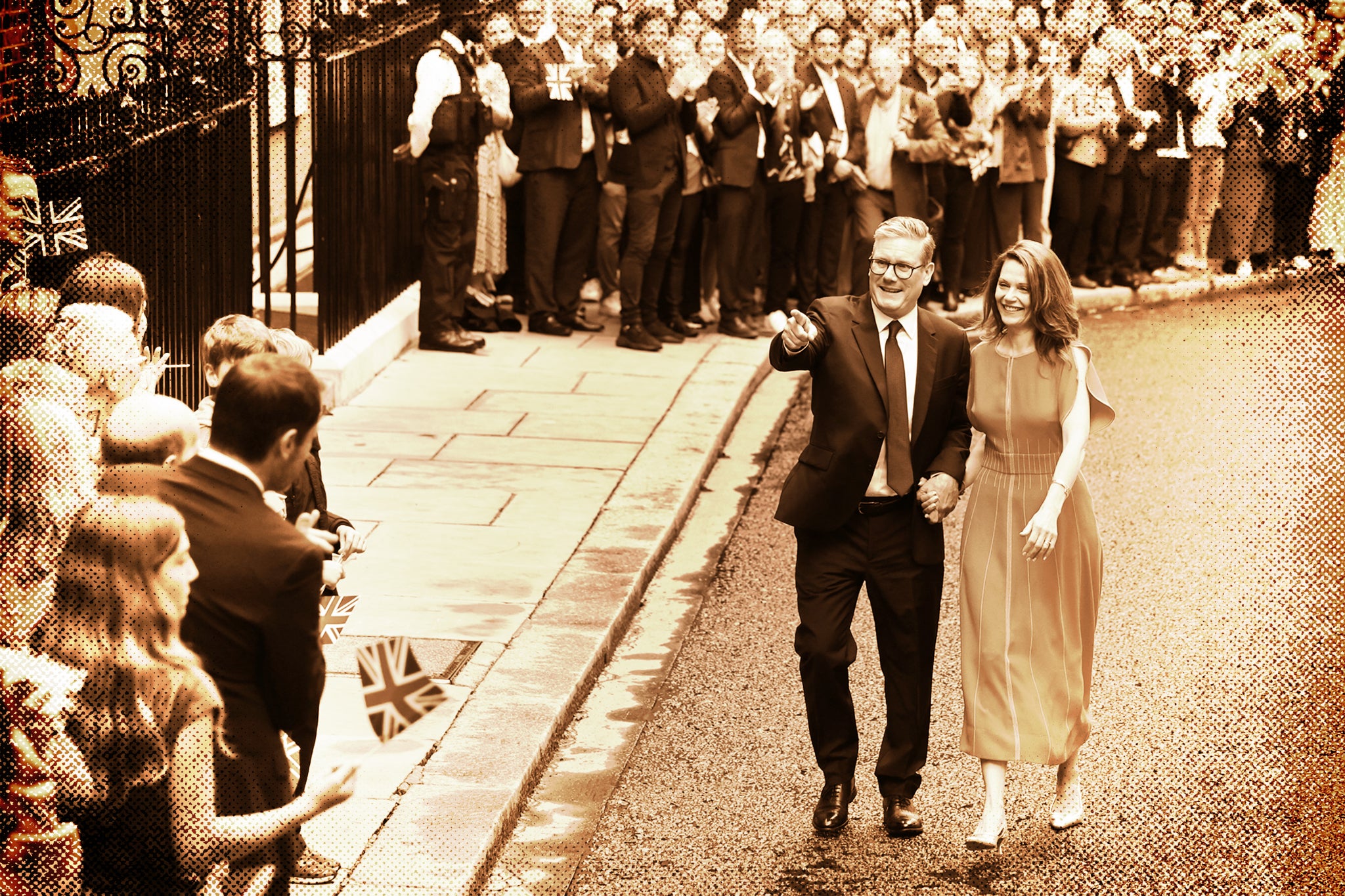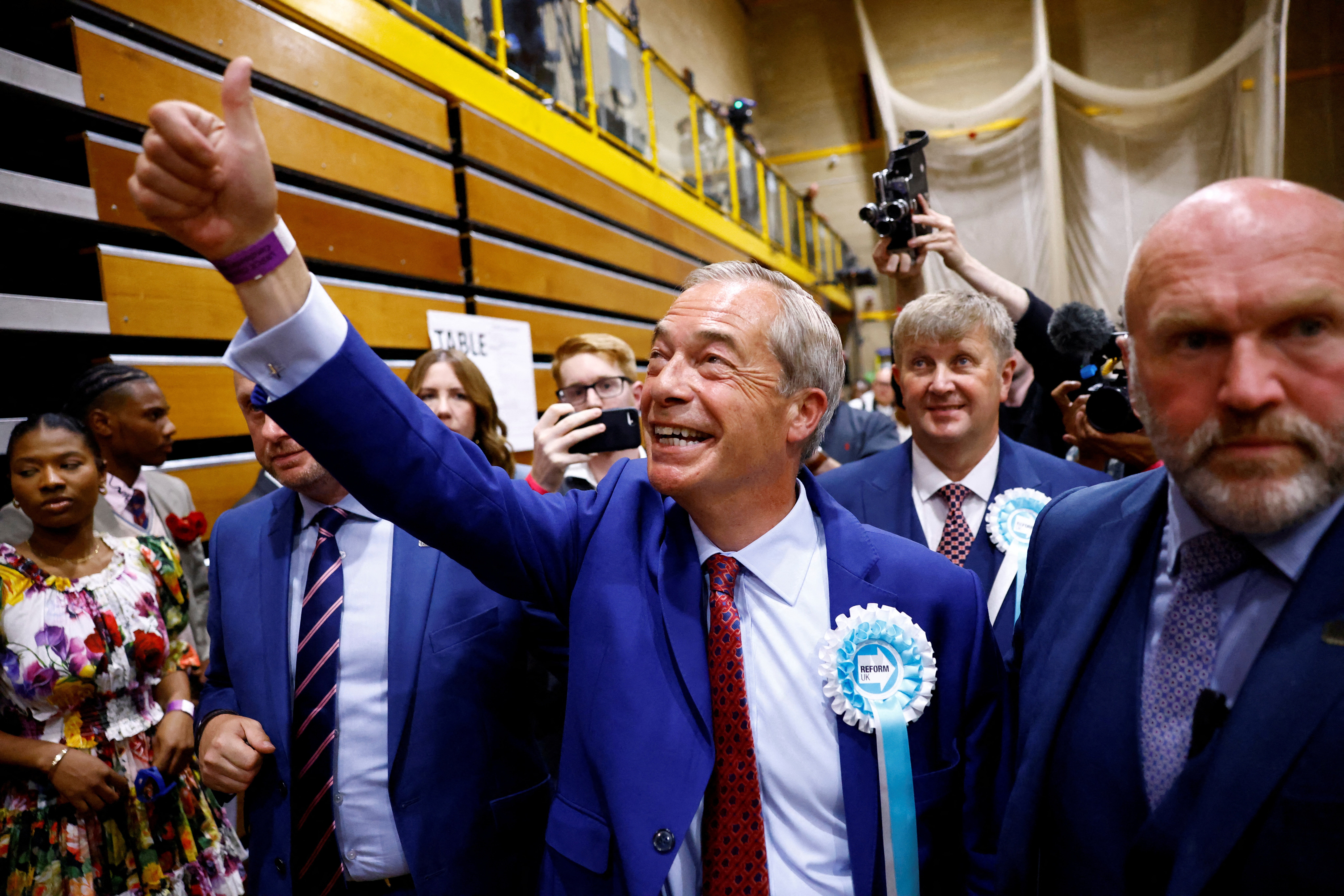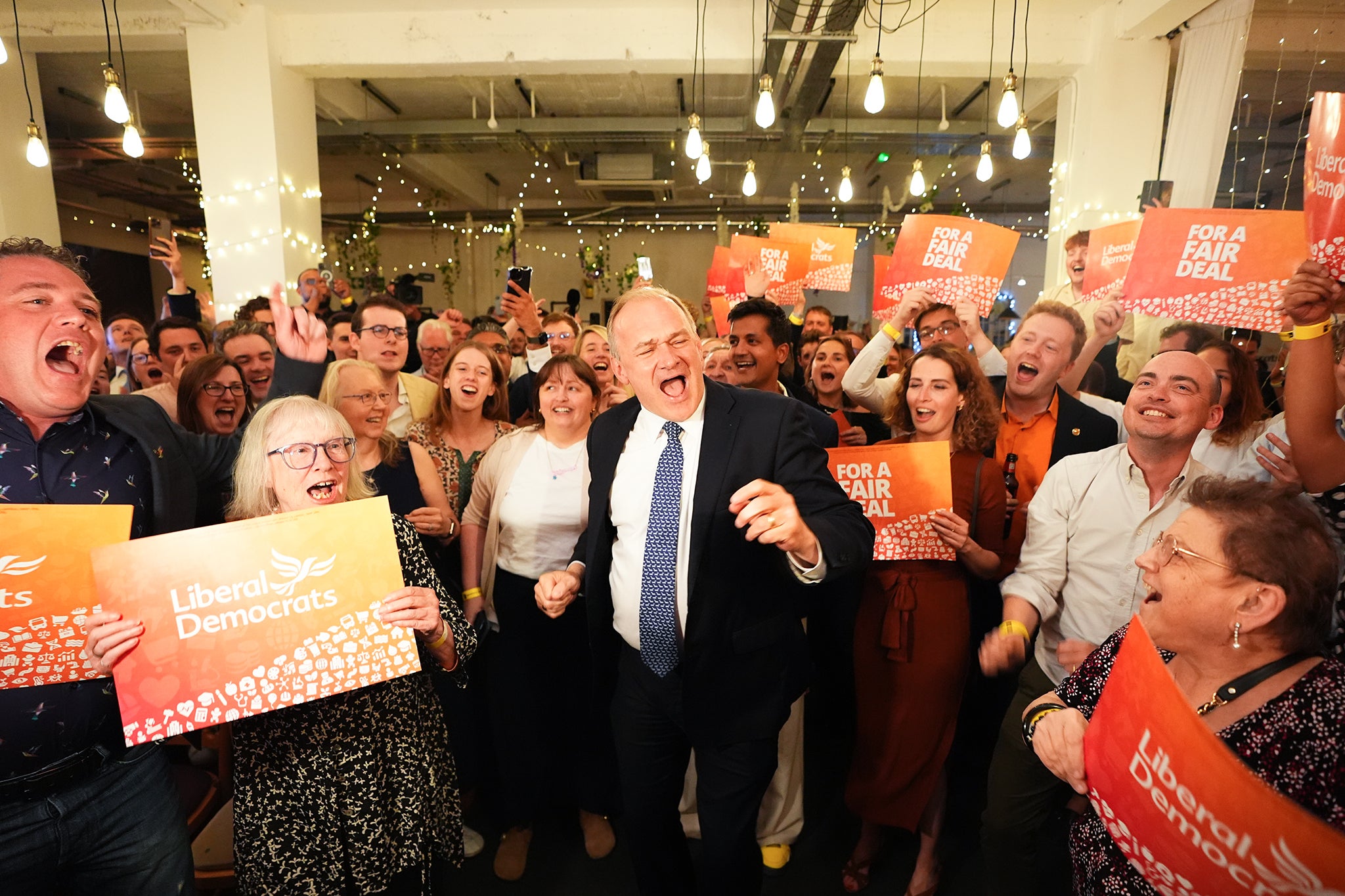History will remember the 2024 election as a new era for politics, not a new dawn for Labour
A catastrophic event for the Tories, a loveless Labour landslide and Farage’s Reform winning 15 per cent of the vote share in just six weeks... Rather than just the normal shuffle of the deck, this was an election which could change the whole game, argues Guy Walters


All general elections are historic, but some are more historic than others. When we look back at the 2024 election in years to come, it will undoubtedly prove to be one of the most momentous ever, not least because it reveals in so many ways quite how much the country has changed.
The most obvious transformation is in the political map of Britain. Not so long ago, it would have been utterly unthinkable to suppose there would be no Conservative seats in Central London, Wales, Oxfordshire or Cornwall.
And yet, as of today, it is now possible to drive from the north of Kent, through the capital, along the M4, and then all the way down to Land’s End and to only cross through five Tory constituencies. The idea that southern England is now a place merely peppered with blue, rather than carpeted with it, is certainly historic.
But it is not just the South where the Tories have been routed, but it is also the Midlands and the North, where the red wall has been well and truly rebuilt, for you can drive from Eastbourne to Hadrian’s Wall, and only pass through one Tory constituency. As if to rub salt in the Tories’ considerable wounds, it is notable that all the constituencies held by their former leaders from 2010 – Cameron’s Witney, May’s Maidenhead, Johnson’s Uxbridge, and Truss’s South West Norfolk – have eschewed their Tory candidates.
One can geekily pore over the new map for hours, and find so many other geo-political quirks, but there, amongst the red, yellow, and yes, blue, are the tell-tale signs of change that has come and will surely continue to come.
These are indicated by the nine patches of green and turquoise, the seats now occupied by parties that should be dismissed no longer as quirky also-rans – the Greens and Reform. Perhaps it is too soon to say, but their presence in the Commons indicates a revolution, or political revolt as Farage put it. So too does the fact that North Antrim no longer has an MP called Paisley for the first time since 1970. Again, the seeds of another revolution, perhaps one to fragment the DUP, along with the fact that Sinn Fein is now the largest party in Northern Ireland.
Last night was historic not just because of the collapse of the Conservatives, but also because of the collapse of another major party – the SNP. While the Tories lost two-thirds of their seats, John Swinney’s party lost over 80 per cent of theirs. Gone for many, many years will be talk of another referendum on Scottish independence, something that for a long time seemed inevitable and just around the corner.
What the 2024 general election will also be remembered for was a lack of enthusiasm among many voters. This was a poll in which people voted against parties rather than for them. Labour’s landslide was, ultimately, a massive protest vote, a vote against the past 14 years, but hardly a vote for a new dawn, as with Blair in 1997.

How else to explain an abysmally low turnout of around 60 per cent, and a vote share for Starmer of just 33.8 per cent? Compare that to the 30.7 per cent that John Major received in 1997 – when he was annihilated – and you will realise that Starmer’s stonking majority is hardly built on a base of overwhelming and widespread enthusiasm.
Labour’s big win owes, of course, much to the quirks of our first past the post system. And while the fairness of it is questioned by the losers after every election, even the most hardened fan of the Starmer project would have to admit that the composition of the House of Commons barely resembles the true will of the electorate.
2024 will be the year in which more people will ask – and especially from the ranks of Generation Z – why our chamber of representatives doesn’t seem, well, very representative. Yes, it may come as some comfort that Starmer’s cabinet is likely to only feature 10 per cent who were educated at a private school – thereby in line with the population generally – but this hardly feels like the stuff of a new epoch.
Then there is the increasingly presidential element of British politics. However much we kid ourselves that we are voting for a party or for a local man or woman, ultimately we are voting for a personality. Why else do broadcasters use the faces of party leaders on their graphics to indicate parties? How else to explain the obsessional focus on one man and his journey into – or out of – No 10? ’Twas ever thus, but it has become more apparent.

Nigel Farage knows this all too well. Would we really have expected Reform to have won a single seat had he not led the party and stood in Clacton? The Greens need to learn a lesson here. Too long an amorphous blob, they ought to coalesce around one single, dynamic and charismatic leader. That may not be the Green way, but the air of presidentialism is seemingly the only way to cut through.
Another man who understood this was Ed Davey of the Liberal Democrats, who treated the whole campaign as an episode of It’s a Knockout, or, for those of us born a long time ago, Duncan Dares.
Barely a day passed without our indomitable politico launching himself from a structure or into the water. In a way, this form of campaigning was historical too, because it showed that you can more than quintuple your number of seats by saying almost nothing at all, and just acting as a bit of clown.
In essence, Davey’s approach was a steroidal version of Starmer’s – don’t say much, and let the people simply vote for you because they don’t want to vote for the Tories. Even by any standard of politics, this seems utterly cynical, but it worked phenomenally well.
The big question is now what does history teach us about what happens next? Of course, no two situations are identical, and it would be far too glib to claim that Starmer will be another Clement Attlee, who enjoyed a massive Labour majority in 1945; one which would be overturned in just six years.

Perhaps that will indeed happen, not least because – as has been often observed since 10pm last night – Starmer’s majority is wide, but not deep, which makes him more vulnerable than he looks. Just as the Conservatives haemorrhaged their big 2019 majority, so too can Labour.
However, back in 1951, there were no disruptors, but merely three parties, and things seemed far more straightforward. Everything is far messier now, the chaos provided by the likes of the Greens and Reform.
Make no mistake, both these parties are eager – and capable – of robbing votes from all three main parties. The underappreciated, and historical, aspect of last night was that a party designed to hobble the Tories also took a huge number of potential votes from Labour. Just look at how Starmer’s party flatlined in places like Sunderland, with swings of around 10 per cent to Reform.
The 2024 general election therefore marked the beginning of a new era. Rather than just the normal shuffle of the deck of 650 familiar cards, last night saw not only the introduction of many new cards, but also an unenthusiastic electorate wondering whether the rules of the game need to be changed entirely.
Join our commenting forum
Join thought-provoking conversations, follow other Independent readers and see their replies
Comments


Bookmark popover
Removed from bookmarks